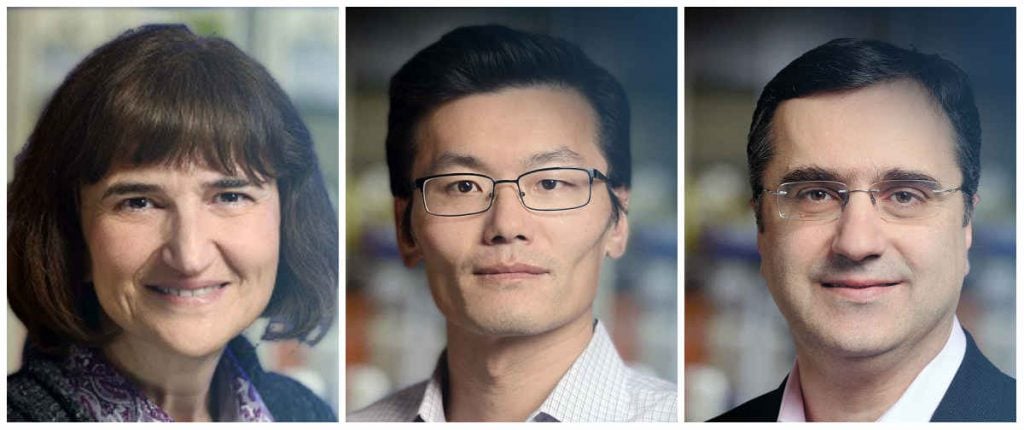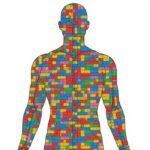Three INBT Researchers Receive Awards from the NIGMS

INBT researchers, Kalina Hristova, Konstantinos Konstantopoulos, and Sean Sun have received funding awards from the National Institute of General Medical Sciences (NIGMS).
Kalina Hristova, professor in the Department of Material Sciences and Engineering, studies the structure and assembly of biological membranes. NIGMS expressed interested in her project, “Seeking the Biophysical Principles that Govern RTK Activation.”
Receptor tyrosine kinases (RTKs) are transmembrane proteins that control cell growth, differentiation, motility, and metabolism. They are promising drug targets, but the activation mechanism of the RTKs in the membrane is not fully understood and hinders the development of effective and safe therapies. Hristova and her team aim to develop new methodologies that can quantify molecular interactions. Along with acquiring new knowledge by the broad scientific community, the work hopes to yield new insights into critical aspects of the signaling by the RTKs used in method development.
Sean Sun, professor in the Department of Mechanical Engineering, and Konstantinos Konstantopoulos professor in the Department of Chemical and Biomolecular Engineering, are collaborating on the project, “Influence of Hydraulic Resistance on the Osmotic Engine Model of Cell Migration.” Sun’s research explore quantitative questions in cellular biomechanics in both prokaryotes and eukaryotes. He is also interested in biological micro-structures and the fundamental properties of soft biological materials. Konstantopoulos’s research aims at learning how physical, electrical, and biochemical cues regulate how a cell reacts, particularly as it relates to cancer metastasis.
Cell migration in the body happens during tissue formations, embryonic development, and even during disease progression, such as cancer metastasis. However, there are parts of the process that are not fully understood. Sun and Konstantopoulos’s joint project aims to understand how hydraulic resistance impacts cell migration. By understanding cell migration, researchers can try to develop therapeutics to possibly reduce disease progression.
Latest Posts
-
 Cellular building blocks may enable new understanding of the body’s “machinery”
December 19, 2025
Cellular building blocks may enable new understanding of the body’s “machinery”
December 19, 2025
-
 Biomedical Engineer Jamie Spangler Receives President’s Frontier Award
December 15, 2025
Biomedical Engineer Jamie Spangler Receives President’s Frontier Award
December 15, 2025
-
 Johns Hopkins Postdoc Named in Forbes `30 Under 30′ List
December 8, 2025
Johns Hopkins Postdoc Named in Forbes `30 Under 30′ List
December 8, 2025


